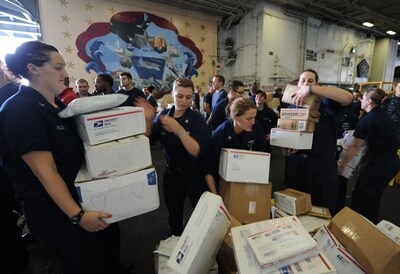PALMDALE, Calif. – The Department of War’s trusted list for small-unmanned aircraft systems, the Blue List, will officially have a new home at the Defense Contract Management Agency’s Special Programs Command, Unmanned Systems–Experimental Command, or US-X, Jan. 1, 2026.
The Blue UAS effort, started by the Defense Innovation Unit in 2020, is a holistic and continuous approach to rapidly vet commercial UAS technology for DOW. The Blue List includes sUAS and the critical parts, sensors and software components to repair or build them.
“The transition is already underway,” said Air Force Col. Dustin Thomas, US-X commander.
According to Thomas, the handoff includes four phases. The first began this summer when DCMA and DIU worked together to capture workflows, data, and lessons, and align governance with DOW and the military services.
The second phase begins in October and includes the establishment of the DCMA Blue List, running pilot workflows with select units and validating tooling and metrics.
A formal transfer of the Blue List from DIU to DCMA will take place on Jan. 1, 2026, with DIU serving as a partner during this third phase.
Finally, DCMA plans to scale and improve the Blue List by the end of 2027 to expand supplier onboarding, assessor coverage, and service integrations, such as measure speed, cost and quality outcomes.
The U.S. President Donald Trump and the Secretary of War Pete Hegseth initiated the transition of the Blue List from DIU to DCMA in a directive earlier this year called “Unleashing U.S. Military Drone Dominance.”
Thomas said DCMA was chosen to head the Blue List because the agency’s ability to verify suppliers, to ensure parts traceability, and to scale production directly supports what the Blue List needs to provide capabilities and value to the warfighter.
“Moving the Blue List to DCMA will deliver the capability, value, and rigor to reach across thousands of suppliers, helping the services field new technologies faster, and with confidence,” Thomas said. “It is an enabler for getting UAS to the warfighter to prepare for any future conflict.”
US-X plans to make the Blue List a true marketplace where servicemembers can purchase trusted drones and drone components with ease, according to Thomas.
“The Blue List team will essentially become a program office, where we provide the warfighter with a vital service,” said Army Maj. Eric Scholl, Blue List program manager.
Growing the list into a larger ecosystem, which captures the updated knowledge and technologies and delivers them directly to the warfighter is the goal, Scholl explained.
“With US-X, the Blue List will provide warfighters with the technologies warfighters need on the ground,” said Scholl. “We’ll use AI to help design UAS with the components units have on hand and locally available 3D printing to create the compatible components they need to meet the mission.”
The technology will give warfighters a single, easy-to-use source of vetted options, Scholl said.
“They can buy, build, repair and sustain drones quickly with components that meet security, safety and quality expectations,” said Thomas. “It complements existing service programs by accelerating access to reliable, U.S.-trusted solutions.”
In his DOW priorities, Hegseth said, “we need the best systems in the hands of warfighters where they need it.”
“At its core, the Blue List develops ways to reduce the operational time frame to get a warfighter what they need to make an impact on the fight,” Scholl said.
It gives warfighters safe, fast, and flexible options and turns a fragmented market into a trusted pipeline, according to Thomas.
“Partnering with DIU, DLA, the military services and industry, DCMA will keep the bar high and the tempo up,” said Thomas. “If you’re a U.S. or allied supplier building secure, high-quality UAS components, we want you in the pipeline. The goal is simple: trusted parts, available at speed.”
| Date Taken: |
12.03.2025 |
| Date Posted: |
12.04.2025 11:54 |
| Story ID: |
552948 |
| Location: |
PALMDALE, CALIFORNIA, US |
| Hometown: |
PALMDALE, CALIFORNIA, US |
| Web Views: |
0 |
| Downloads: |
0 |
PUBLIC DOMAIN
This work, DCMA’s Blue List scales innovation, warfighter lethality, by Sarah Gauvin, identified by DVIDS, must comply with the restrictions shown on https://www.dvidshub.net/about/copyright.


![DVIDS – Images – Maj. Gen. Robert W. Teater Readiness Center Ribbon Cutting [Image 11 of 11] DVIDS – Images – Maj. Gen. Robert W. Teater Readiness Center Ribbon Cutting [Image 11 of 11]](https://101veterans.com/wp-content/uploads/2024/12/dvids_logo_20_main.png)

 Private Internet Access gives you unparalleled access to thousands
of next-gen servers in over 83 countries and each US state. Your
VPN experience will always be fast, smooth, and reliable.
Private Internet Access gives you unparalleled access to thousands
of next-gen servers in over 83 countries and each US state. Your
VPN experience will always be fast, smooth, and reliable.


